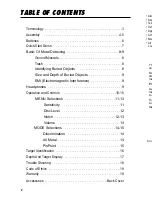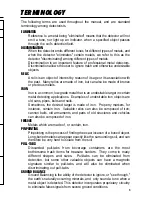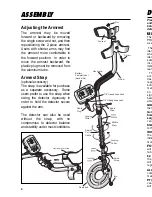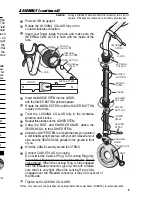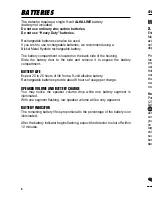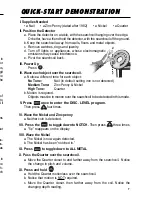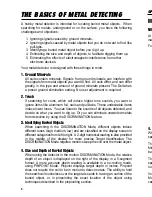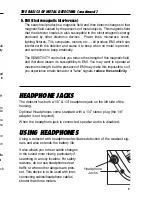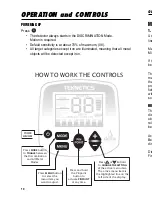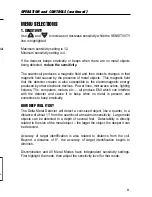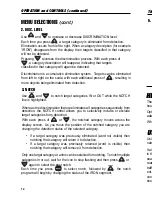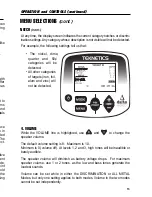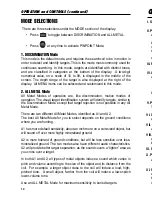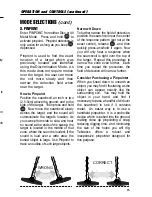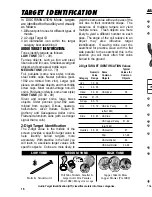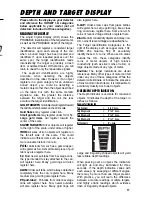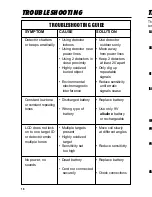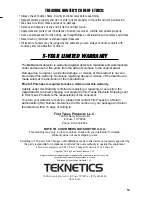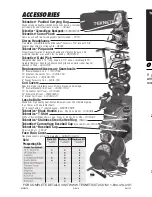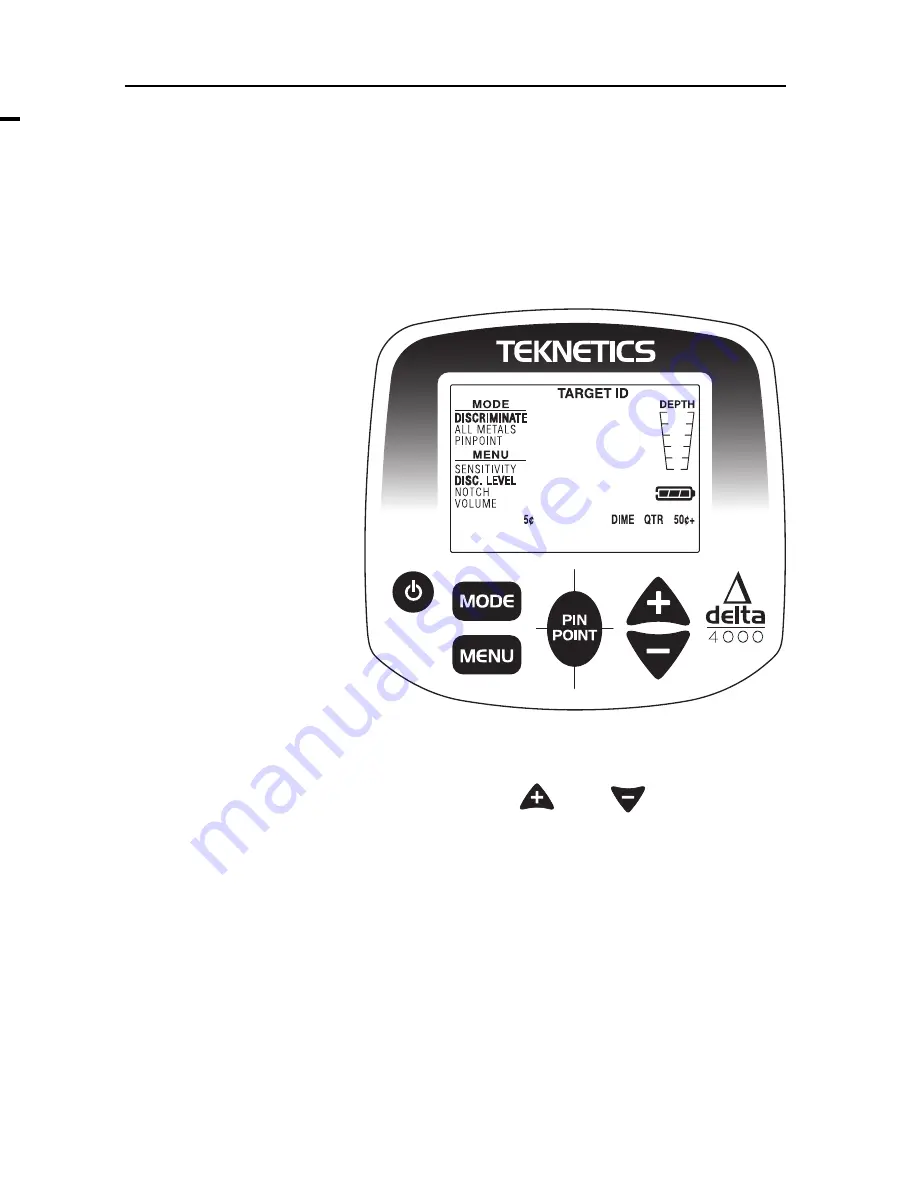
8
13
THE BASICS OF METAL DETECTING
A hobby metal detector is intended for locating buried metal objects. When
searching for metals, underground or on the surface, you have the following
challenges and objectives:
1. Ignoring signals caused by ground minerals.
2. Ignoring signals caused by metal objects that you do not want to find, like
pull-tabs.
3. Identifying a buried metal object before you dig it up.
4. Estimating the size and depth of objects, to facilitate digging them up.
5. Eliminating the effects of electromagnetic interference from other
electronic devices.
Your metal detector is designed with these things in mind.
1. Ground Minerals
All soils contain minerals. Signals from ground minerals can interfere with
the signals from metal objects you want to find. All soils differ, and can differ
greatly, in the type and amount of ground minerals present. The Delta has
a preset ground elimination setting. No user adjustment is required.
2. Trash
If searching for coins, which will induce higher tone sounds, you want to
ignore items like aluminum foil, nails and pull-tabs. These undesirable items
induce lower tones. You can listen to the sounds of all objects detected, and
decide on what you want to dig up. Or you can eliminate unwanted metals
from detection by using the DISCRIMINATION feature.
3. Identifying Buried Objects
When searching in the DISCRIMINATION Mode, different objects induce
different tones (high, medium, low) and are classified on the display screen in
different categories from left to right. A 2-digit numerical reading is also provided
in the middle of the display for more precise Target Identification. The
DISCRIMINATION Mode requires motion: sweep the coil over the metal object.
4. Size and Depth of Buried Objects
When using the detector in the motion DISCRIMINATION Mode, the relative
depth of an object is displayed on the right of the display in a 5-segment
format. A more accurate depth reading is available in a no-motion mode,
using PINPOINT Mode. Pinpoint displays target depth in inches. Pinpoint
does not require the coil to be in motion to detect metals. The ability to hold
the searchcoil motionless over the target also aids in tracing an outline of the
buried object, or in pinpointing the exact location of the object using
techniques described in the pinpointing section.
At any time, the display screen indicates the current category notches or discrim-
ination settings. Any category whose description is not visible will not be detected.
For example, the following settings tell us that:
• The nickel, dime,
quarter and 50¢
categories will be
detected.
• All other categories
of targets (iron, foil,
alum and zinc) will
not be detected.
4. VOLUME
While the VOLUME line is highlighted, use
and
to change the
speaker volume.
The default volume setting is 8. Maximum is 10.
Minimum is 0 (volume off). At levels 1, 2 and 3, high tones will be inaudible or
barely audible.
The speaker volume will diminish as battery voltage drops. For maximum
speaker volume, use 1 or 2 tones, as the low and bass tones generate the
loudest sounds.
Volume can be set while in either the DISCRIMINATION or ALL METAL
Modes, but only one setting applies to both modes. Volume in the two modes
cannot be set independently.
MENU SELECTIONS
(cont.)
NOTCH
(cont.)
OPERATION and CONTROLS (continued)


